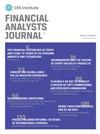International Practice of Tax Expense Identification
IF 3.4
3区 经济学
Q1 BUSINESS, FINANCE
引用次数: 0
Abstract
While it is generally accepted in foreign jurisdictions to treat tax expenditures as foregone budget revenues, due to the application of certain provisions of the tax code, significant cross-country differences emerge in determining which of these can be recognized as deviations and which as the norm. There is no consensus on which approaches can be recognized as best practice. The topic of methods for determining tax expenditures remains relevant. The purpose of the study is to identify the principles and criteria of tax expense accounting. Theoretical basis of the study consists of legal acts and approaches to definition of normative tax structure. The research is conducted with the use of empirical methods, including synthesis and comparative analysis of cases. As a result of the study a classification of tax preferences was developed and two methods of tax expense identification, normative and conditional, were proposed. A certain correlation between the concepts of tax expenses and methods of their identification was revealed. The international practice of attributing preferences to tax expenses was reviewed, which helps to understand the differences in the identification methods suggested by the author. The conclusion on advantages and limitations of the use of the two methods of tax expense accounting is made.税务费用鉴定的国际实践
虽然在外国司法管辖区普遍接受将税收支出视为先前的预算收入,但由于适用税法的某些规定,在确定哪些可以被认为是偏差,哪些可以被认为是规范方面出现了重大的跨国差异。对于哪些方法可以被认为是最佳实践,目前还没有达成共识。确定税收支出方法的主题仍然是相关的。本研究的目的是确定税务费用会计的原则和标准。研究的理论基础包括法律行为和规范税收结构的界定方法。本研究采用实证方法,包括案例综合分析和比较分析。研究的结果是对税收优惠进行了分类,并提出了两种确定税收费用的方法,即规范性和有条件的方法。揭示了税项费用概念与税项费用识别方法之间存在一定的相关性。回顾了将优惠归因于税收费用的国际惯例,这有助于理解作者建议的识别方法的差异。总结了两种税项费用核算方法的优缺点。
本文章由计算机程序翻译,如有差异,请以英文原文为准。
求助全文
约1分钟内获得全文
求助全文
来源期刊

Financial Analysts Journal
BUSINESS, FINANCE-
CiteScore
5.40
自引率
7.10%
发文量
31
期刊介绍:
The Financial Analysts Journal aims to be the leading practitioner journal in the investment management community by advancing the knowledge and understanding of the practice of investment management through the publication of rigorous, peer-reviewed, practitioner-relevant research from leading academics and practitioners.
 求助内容:
求助内容: 应助结果提醒方式:
应助结果提醒方式:


